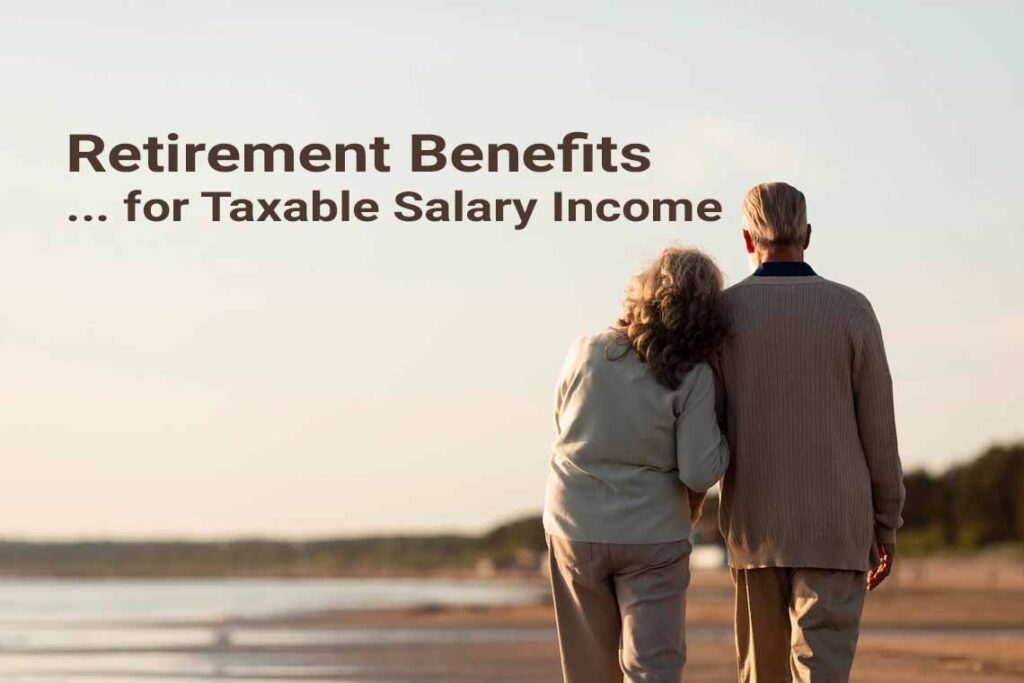So far, we have discussed what are the various incomes, allowances and perquisites which are exempt and which are to be included in gross salary. From the gross salary so computed, the following three deductions are allowed under section 16 provided the employee does not opt to be taxed under section 115BAC:
(i) Standard deduction [Section 16(ia)]
(ii) Entertainment allowance [Section 16(ii)]
(iii) Tax on employment [Section 16(iii)]
1. Standard deduction [Section 16(ia)]
The standard deduction from gross salary shall be
– Rs. 50,000 or
– the amount of the salary,
whichever is less.
2. Entertainment Allowance [Section 16(ii)]
Entertainment allowance is first included in computation of the gross salary. A deduction is then allowed under section 16(ii) if conditions prescribed have been satisfied.
3. Tax on Employment (Professional Tax) [Section 16(iii)]
As per the Constitution of India, the State Governments/Local Authorities are empowered to make law and collect taxes on professions, trades, callings and employment.
As per section 16(iii), a deduction of any sum paid by the assessee, on account of a tax on employment, shall be allowed. The deduction will be allowed in the year in which the tax is actually paid by the employee.
Note.—The deductions under section 16(ia), section 16(ii) or section 16(iii) shall not be allowed to the employee if he opts to be taxed under section 115BAC.
| 1. Where professional tax is paid by the employer on behalf of the employee, it will first be included in his gross salary as a perquisite, being a monetary obligation of the employee discharged by the employer. Thereafter, a deduction on account of such professional tax will be allowed to the employee from his gross salary.
2. Professional tax due but not paid shall not be allowed as deduction. |
EXAMPLE :
X furnishes the following particulars of his remuneration for the previous year 2021-22 from R Company Ltd. where he is employed as an Accountant:
| Basic salary | Rs.17,700 p.m. |
| Dearness allowance (forming part of salary for retirement benefits) | Rs.2,000 p.m. |
| Children Education Allowance (for one child) | Rs.250 p.m. |
| Entertainment Allowance | Rs.250 p.m. |
He is entitled to use of a car (below 1.6 ltrs.) for official and personal work.
He has paid Rs.1,200 towards professional tax to State Government. Compute his income from salary for the assessment year 2022-23
SOLUTIONS :
| Rs. | Rs. | |
| Basic salary | 2,12,400 | |
| Dearness allowance | 24,000 | |
| Education allowance (Rs.3,000 – Rs.1,200) | 1,800 | |
| Entertainment allowance | 3,000 | |
| Perquisite value of car fringe benefit in the hands of the employer (Rs.1,800 × 12) | 21,600 | |
| Gross salary | 2,62,800 | |
| Less:(i) Standard deduction under section 16(ia) | 50,000 | |
| (ii) Entertainment allowance | Nil | |
| (iii) Professional-tax under section 16(iii) | 1,200 | 51,200 |
| Income from salary | 2,11,600 |
EXAMPLE :
In above Example, Assume that the professional tax of Rs.1,200 is paid by the employer on behalf of the employee. Compute the income from salary.
SOLUTIONS:
| Particulars | Rs. | Rs. |
| Basic salary | 2,12,400 | |
| Dearness allowance | 24,000 | |
| Education Allowance (Rs.3,000 – Rs.1,200) | 1,800 | |
| Entertainment Allowance | 3,000 | |
| Perquisite value of car | 21,600 | |
| Professional tax paid by employer | 1,200 | |
| Gross Salary | 2,64,000 | |
| Less: (i) Standard deduction u/s 16(ia) | 50,000 | |
| (i) Entertainment Allowance u/s 16(ii) | Nil | |
| (ii) Professional-tax u/s 16(iii) | 1,200 | 51,200 |
| Income from salary | 2,12,800 |


![[Section 89/Rule 21A]- Tax Relief](https://incometaxmanagement.in/wp-content/uploads/2023/09/Tax-Relief-under-Section-89-Rule-21A-1024x683.jpg)







![Perquisites [(Section 17(2)] for calculating Salary Income](https://incometaxmanagement.in/wp-content/uploads/2023/09/Perquisites-Section-172-1-1024x683.jpg)
